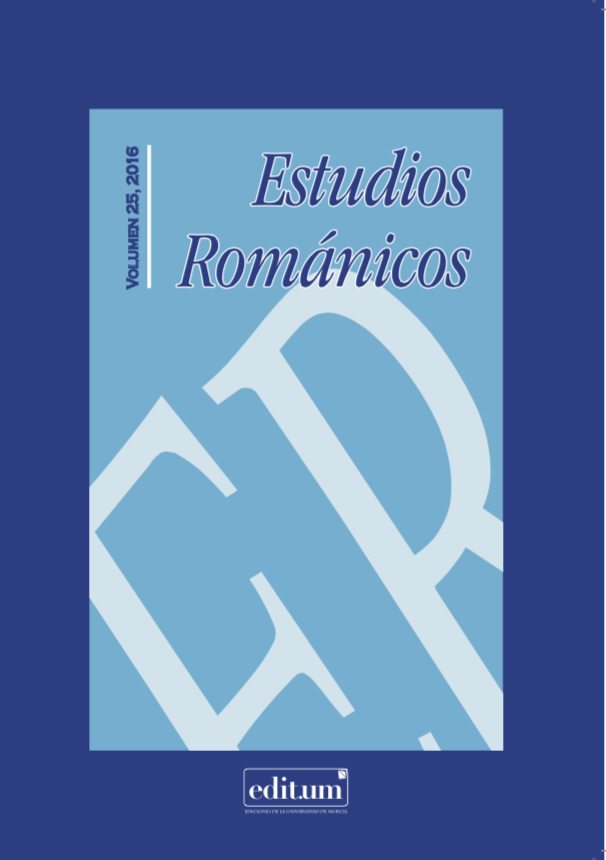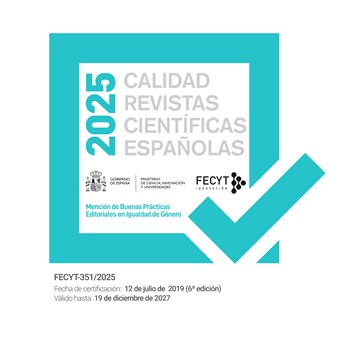From the slave to contemporary Antillean woman: literary chronicle of a traumatic motherhood
Abstract
The aim of this study is to analyse the most relevant specific traits of motherhood in francophone Antilles, through the study of the evoked vision of certain female writers. The characters of their narrative allow us to verify the intimate rela- tionship that is established between the particular conception of motherhood and the slavery past in its less known dimension. Resistance, infanticide, solitude, abandonment and broken family ties, are some of the aspects related to the subject of motherhood and the search for identity that emerge from the analysed works of fiction. Indeed, the mentioned aspects of the family structure, the position of women in relation to motherhood and the inherent complexities to the Antilles’ society, to its past and its evolution, become a major source of female inspiration and differentiation.
Downloads
-
Abstract478
-
PDF (Español (España))460
-
PDF460
References
AGNANT, Marie-Célie (2001): Le livre d’Emma. Montreal: Rémue-ménage.
BEAUVUE-FOUGEYROLLAS, Claudie (1985): Les Femmes antillaises. París: L’Harmattan.
CONDÉ, Maryse (1986): Moi, Tituba sorcière... Noire de Salem. París: Mercure de France.
CONDÉ, Maryse (1993): La parole des femmes. París: L’Harmattan.
CONDÉ, Maryse (1997a): Desirada. París: Robert Laffont.
CONDÉ, Maryse (1997b): Pays mêlé. París: Robert Laffont.
CONDÉ, Maryse (2001): La Belle Créole. París: Mercure de France.
CONDÉ, Maryse (2003): Histoire d’une femme cannibale. París: Mercure de France.
FRISCH, Nicole & Marc (1987): “Les esclaves de la Guadeloupe à la fin de l’Ancien Régime: du code noir aux codes numériques”. Histoire & Mesure, no II-2, 93-116. [Consultado en línea: http://www.persee.fr/doc/hism_0982-1783_1987_num_2_2_1315]
JURNEY, Florence Ramond (2006): Voix/es libres: maternité et identité féminine dans la littérature antillaise. Alabama: Summa Publications, Inc.
LOUIS XIV (1680): Le Code Noir. Édit du Roi sur les esclaves des îles de l’Amérique. Versión digital por Jean-Marie Tremblay (2010). [Consultado en línea: http://classiques.uqac.ca/collection_documents/louis_XIV_roi_de_France/code_noir/ code_noir.pdf]
PROSPER-CHARTIER, Marie-France R. (2008). Les figures maternelles dans l’œuvre de Gisèle Pineau: maternité et identité. Tesis digitales: Florida State Universi- ty, College of Arts and Sciences. [Consultada en línea: http://diginole.lib.fsu. edu/islandora/object/fsu%3A183593]
N’SONDÉ, Mâ-Ntsiéla (2006): “Voix des femmes, voies et destins croisés: Maryse Condé, de Moi Tituba... à Desirada”. L’Arbre à Palabres, no 18, 136-144. [Consultado en línea: https://nsondesr.wordpress.com/2016/05/24/voix-de- femmes-voix-et-destins-croises-maryse-conde-de-moi-tituba-a-desirada/]
PINEAU, Gisèle (2005): Fleur de Barbarie. París: Mercure de France. (2006): L’Espérance macadam. París: HC.
PINEAU, Gisèle (2009): Un papillon dans la cité. París: Sepia.
Las obras que se publican en esta revista están sujetas a los siguientes términos:
1. El Servicio de Publicaciones de la Universidad de Murcia (la editorial) conserva los derechos patrimoniales (copyright) de las obras publicadas, y favorece y permite la reutilización de las mismas bajo la licencia de uso indicada en el punto 2.
2. Las obras se publican en la edición electrónica de la revista bajo una licencia Creative Commons Reconocimiento-NoComercial-SinObraDerivada 3.0 España (texto legal). Se pueden copiar, usar, difundir, transmitir y exponer públicamente, siempre que: i) se cite la autoría y la fuente original de su publicación (revista, editorial y URL de la obra); ii) no se usen para fines comerciales; iii) se mencione la existencia y especificaciones de esta licencia de uso.
3. Condiciones de auto-archivo. Se permite y se anima a los autores a difundir electrónicamente las versiones pre-print (versión antes de ser evaluada) y/o post-print (versión evaluada y aceptada para su publicación) de sus obras antes de su publicación, ya que favorece su circulación y difusión más temprana y con ello un posible aumento en su citación y alcance entre la comunidad académica. Color RoMEO: verde.













